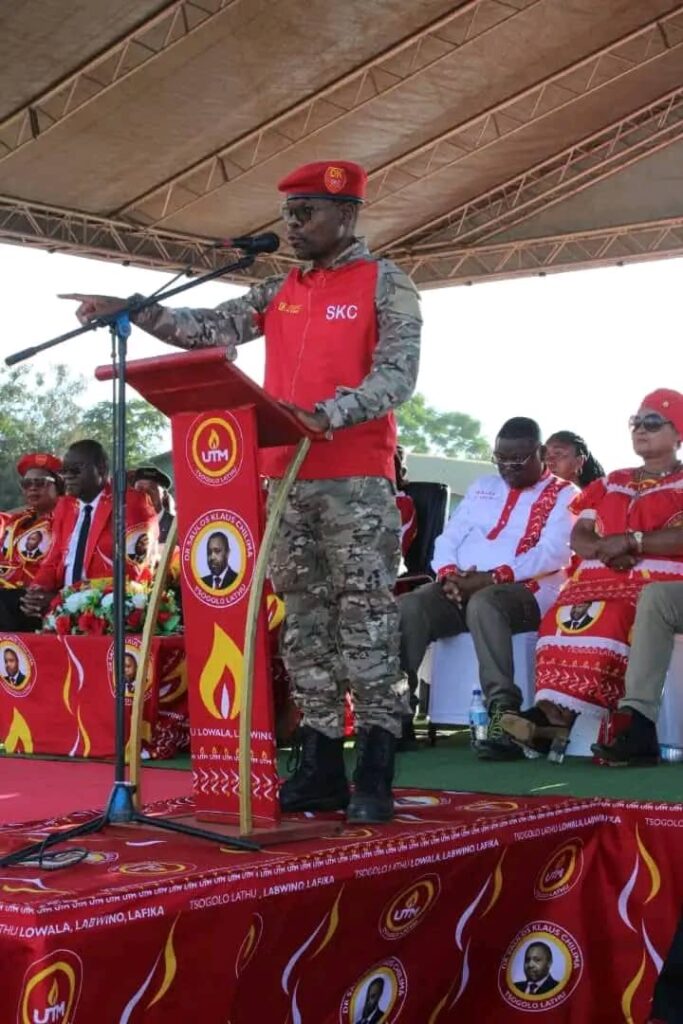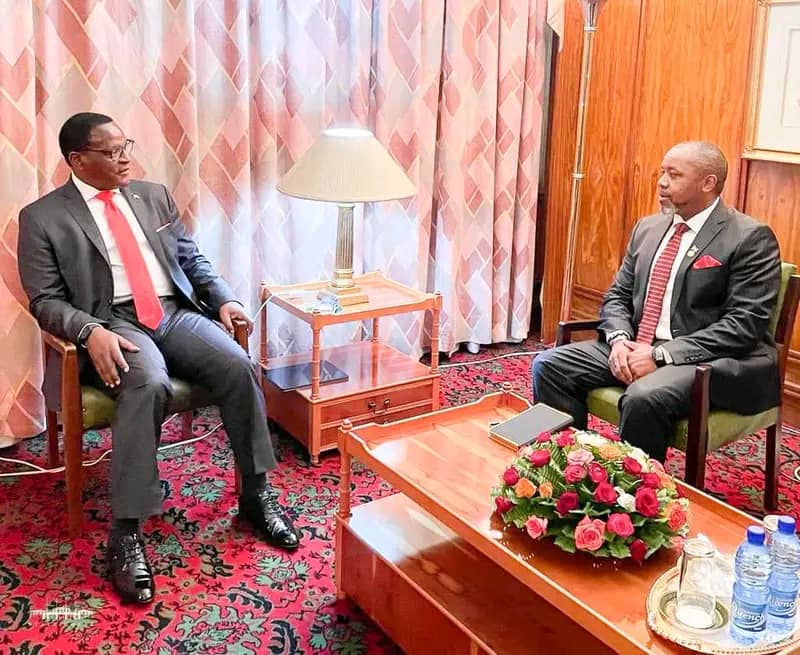By Burnett Munthali
Felix Njawala, the spokesperson of the United Transformation Movement (UTM), has made a striking revelation that the late Vice President, Dr. Saulos Klaus Chilima, was never in support of forming an alliance with the Malawi Congress Party (MCP).
He claimed that Dr. Chilima was convinced that working with MCP would not bring meaningful change to Malawi, and as such, he resisted the idea from the onset.

Njawala
Njawala said Chilima went as far as instructing his close ally, Chidanti Malunga, to identify someone else who could handle any potential negotiations with MCP on UTM’s behalf.
This, according to Njawala, was because Chilima had concluded that the alliance would be unfruitful and would not address the country’s pressing issues.
He suggested that despite being part of the Tonse Alliance government, Chilima had serious doubts about MCP’s ability to lead Malawi towards progress.
Njawala stressed that the current situation in Malawi has become dire, with citizens facing worsening economic conditions and governance failures.
He argued that the country needs a new kind of leadership—one that is not tied to failed alliances but focused on real transformation.
In this context, Njawala endorsed Dr. Dalitso Kabambe as a potential national leader who can rebuild Malawi from its current state.
He praised Kabambe’s expertise in economic management and described him as the right person to guide Malawi through its recovery.
These claims paint a different picture of the Tonse Alliance, which many believed was built on trust and common goals.
Instead, it appears there were internal disagreements and ideological differences that were hidden from the public eye.
Chilima’s reluctance to engage with MCP suggests deeper tensions and mistrust that may have affected the Alliance’s ability to function cohesively.
Njawala’s remarks could reshape public perception of the Tonse government and raise new questions about how political alliances are formed in Malawi.
As the country approaches a critical political juncture, citizens may need to reconsider what kind of leadership Malawi truly needs.
With Chilima no longer present to speak for himself, his legacy and decisions—especially regarding alliances—are now being interpreted by those who knew him closely.
Felix Njawala’s statement has added a new and controversial layer to Malawi’s political conversation—one that may influence both current debates and future decisions.




